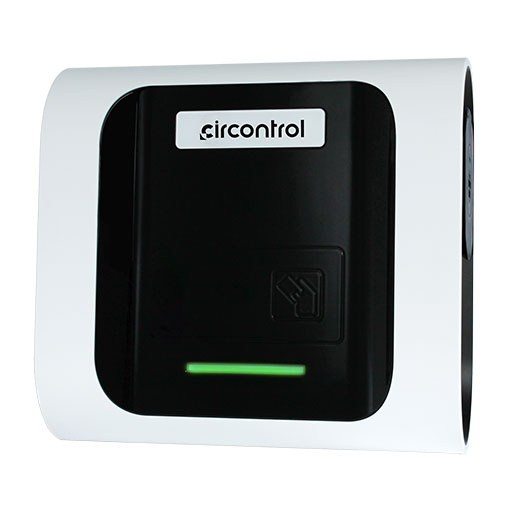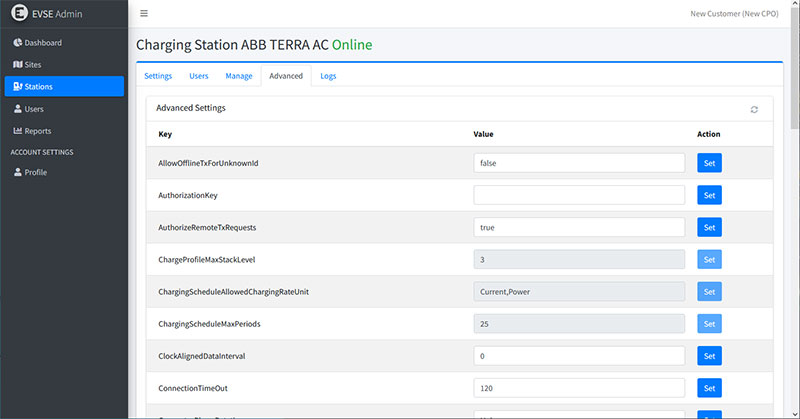Introduction
Recently, we encountered a challenging issue while connecting a Circontrol eNext Elite charging station to our OCPP server. The charging station, running firmware version 1.0.1-rc1, entered an infinite reboot loop during the provisioning process. This post details the problem, the steps we took to identify the cause, and how we managed to mitigate the issue temporarily.
The Issue
The problem arose when our OCPP server began provisioning the Circontrol eNext Elite charging station after receiving the initial BootNotification message. As part of the provisioning process, our server sent several ChangeConfiguration messages to set key parameters, such as:
StopTransactionOnInvalidId: trueLocalPreAuthorize: falseAllowOfflineTxForUnknownId: false
The charging station correctly responded with "status": "Accepted" for these messages, indicating that the configuration changes were applied successfully.
However, when our server attempted to set the parameters TransactionMessageRetryInterval: 300 and TransactionMessageAttempts: 10, the charging station responded with "status": "RebootRequired". Shortly after, the charging station rebooted itself, sending a new BootNotification message and restarting the provisioning process. This led to an infinite reboot loop, preventing the charging station from functioning normally.
Understanding the Problem
According to the OCPP 1.6 specification, a charging station should not reboot after responding with "RebootRequired" unless the configuration change genuinely requires it. Moreover, these specific parameters (TransactionMessageRetryInterval and TransactionMessageAttempts) were not altered from their previous values, making the reboot response even more puzzling.
Potential Causes
- Firmware Bug: There may be a bug in the charging station’s firmware that improperly handles these configuration changes, triggering an unnecessary reboot.
- Incorrect Handling: The charging station could be misinterpreting the
TransactionMessageRetryIntervalandTransactionMessageAttemptsas requiring a reboot, even though no actual change occurred. - Misconfiguration: There might be a conflict between the initial settings and the values being applied, leading to the reboot loop.
Our Approach to a Temporary Solution
Given the immediate impact on the charging station’s functionality, we decided to implement a temporary workaround:
- Omitting Problematic Parameters: We opted not to send the
TransactionMessageRetryIntervalandTransactionMessageAttemptsconfiguration settings to the Circontrol eNext Elite charging stations. By skipping these parameters, we were able to prevent the charging station from entering the reboot loop, allowing it to function normally.
Next Steps
While our temporary solution has resolved the issue for now, it’s not a permanent fix. We are planning the following steps to address the root cause:
- Contacting Circontrol Support: We will reach out to Circontrol’s technical support team with a detailed report of the issue. There may be a firmware update or a specific configuration that can resolve the problem.
- Firmware Update: If an update is available, we will apply it to see if it corrects the behavior related to the
TransactionMessageRetryIntervalandTransactionMessageAttemptssettings. - Monitoring and Further Testing: We will continue to monitor the performance of the charging stations and conduct further testing to ensure that the issue does not recur.
Conclusion
This issue highlights the importance of rigorous testing and troubleshooting when integrating OCPP-compliant devices with centralized management systems. While OCPP offers a robust framework for managing EV charging stations, differences in implementation and firmware behavior can lead to unexpected challenges. By documenting and sharing our experiences, we hope to help others in the EV charging community who may encounter similar issues.
If you’ve faced similar problems or have insights into resolving this issue, we’d love to hear from you. Sharing knowledge is key to advancing the reliability and functionality of EV infrastructure.


